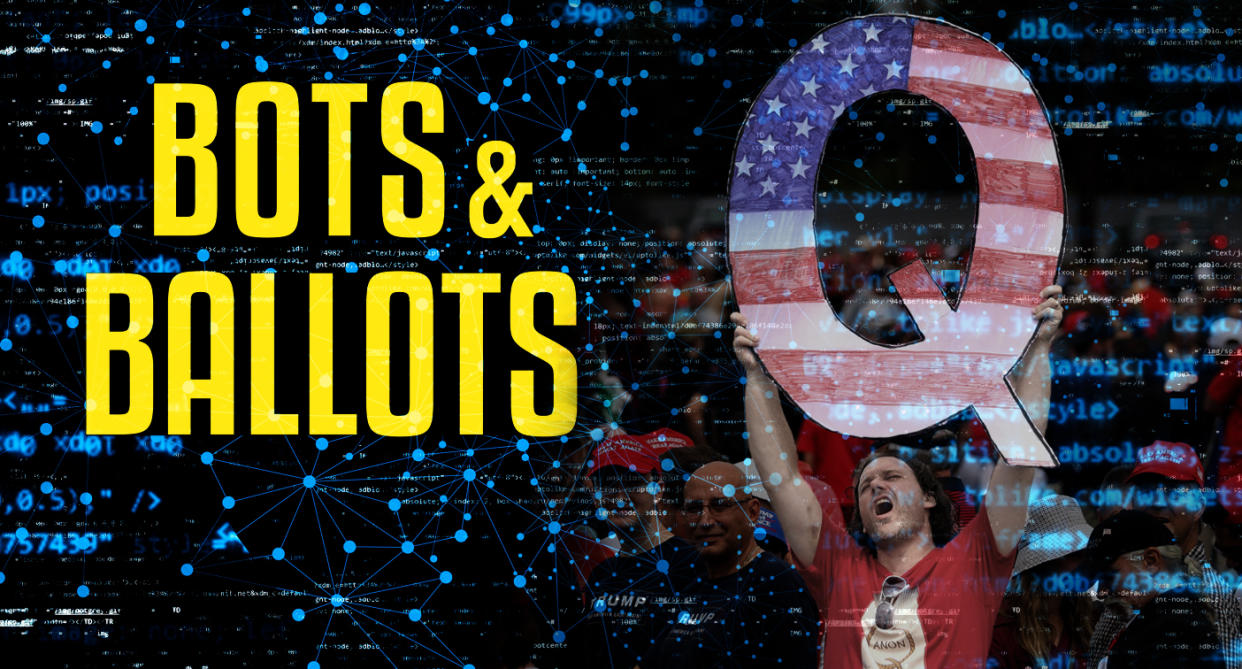Why QAnon has gained traction in Trump’s America

SAN FRANCISCO — As President Trump campaigned last week at large rallies for Republican politicians in Florida, Pennsylvania and Ohio, several members of his audiences wore T-shirts or carried signs blaring the letter “Q” — short for QAnon.
Followers of Q, an anonymous conspiracy theorist purporting to be a high-ranking government official who posts on 4Chan, a freewheeling message board, have been quietly growing in the wilds of the American internet since Trump was elected president. Based solely on the word of Q, they believe, for instance, that prominent Democrats like Hillary Clinton are involved in a pedophilia ring, and that Trump is secretly working with special counsel Robert Mueller to bring it down. The sudden proliferation of these evidence-free claims has caused many news organizations to contemplate why they’ve caught fire at this particular moment in time.
“These kinds of conspiracy theories take root in moments when the society is going through a really tough dislocation, where the economy is not necessarily in bad shape — you could argue the economy today is in pretty good shape — but the economy is changing really quickly,” Washington Post senior editor Marc Fisher told Grant Burningham, host of the Yahoo News podcast “Bots and Ballots.”
Download or subscribe on iTunes: “Bots & Ballots” by Yahoo News
Last week, the Washington Post published 12 articles on QAnon over four days in an attempt to better inform mainstream readers about the fringe following. Fisher said there’s little doubt that the president’s own campaign message has helped QAnon flourish.
“Certainly there’s been a wholesale change in the way we work and the availability of jobs — at least traditional jobs — and whenever you see that, you see an uptick in these kinds of conspiracy theories and a willingness in people to believe that the system is rigged against them,” Fisher said. “This was at the core of Trump’s message in the 2016 campaign.”
At the same time, Fisher says that it’s wrong to think that all QAnon followers are Trump supporters and vice versa.
“I wouldn’t paint it with such a broad brush as to say this represents Trump supporters in any large-scale way,” Fisher said. “This burst onto the public scene last week when we saw the president holding a rally at which a number of people were wearing Q shirts and holding up signs about QAnon, and it made it look like this very fringe online discussion was kind of breaking out into the mainstream through appearing on the TV coverage of the president’s rally. But this is still a pretty fringy kind of thing. Of course, that doesn’t make it any less dangerous.”
Listen to the full interview with Marc Fisher here.
_____
More “Bots & Ballots” episodes from Yahoo News:


